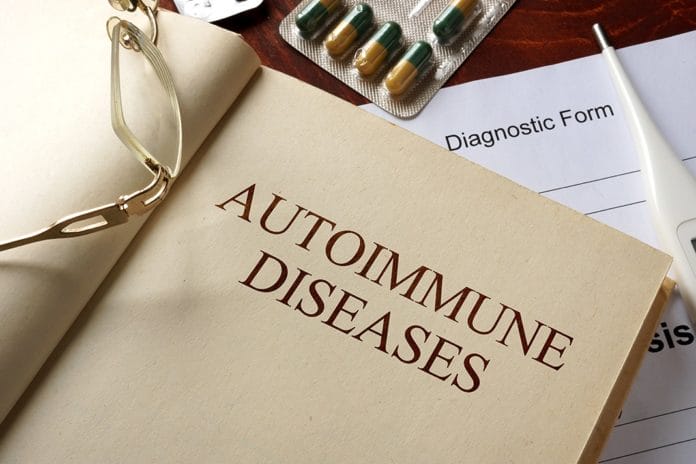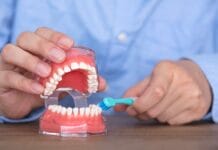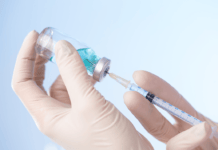When a patient states that they have an autoimmune disease, I admit that generalizations about the diseases enter my mind, but not the specifics of each disease. While I know that immune function is decreased and good home care is especially needed, it may be just enough to know what to look for during the appointment.
However, patients will voice a chief concern that they had something going on in their mouths 30 days ago but haven’t experienced it since. It can be challenging to determine what the oral health event was, especially if they are not honest with their health history or even know if they have an autoimmune disease. Many patients may not yet have the diagnosis for a condition, but they may admit they are “being tested” for such and such.
When I do come across these patients, I ask certain questions pertaining to their symptoms. What are the symptoms? How often? What seems to cause them, and were they any triggers? How severe? Were any medications taken to address the condition? Are the symptoms debilitating during flare-ups?
These systemic concerns need to be noted, and it’s a good transition to discussing how it affects the dental aspect. Do any symptoms show up in the mouth, such as dry mouth, sores, tongue issues, or more than usual bleeding or pain?
Since patients come to the dental office for dental knowledge, I am more conscious of pinpointing certain areas in the mouth for improvement for an overall healthier result. Reviewing different products that will benefit the patient and thoroughly reviewing good home-care techniques are highly important for this group.
And while many patients still do not realize the systemic/dental correlation, extra time is taken to educate the patient on how these symptoms may affect the mouth. While I am not aware of all autoimmune diseases or symptoms, I recognize a handful of the common ones and try my best to improve the patients’ in-office experience and at-home experience to help with their oral health care.
Understanding Basic Causes
Autoimmune diseases occur when the body’s immune system creates antibodies that attack healthy cells by mistake. Ideally, the purpose of the immune system is to fight off and defend the body from invasion. When the body starts to attack its own cells and tissues, though, autoimmune disease has occurred.1
It’s not fully known why this happens. Autoimmune diseases may affect specific organs or body systems such as endocrine, gastrointestinal, liver, rheumatological, and neurological.2 With most body parts being affected, there are no cures − only symptom control and relief. These diseases tend to come and go with flare-ups. Most autoimmune diseases are not fatal, but they are more likely to shorten life expectancy.2
Demographics
Women tend to be more prone than men to autoimmune diseases. One suggestion is that testosterone protects men against autoimmune diseases. Testosterone reduces the amount of B cells, which is harmful to antibodies.3 Hormonal changes in puberty, pregnancy, and menopause may instigate an autoimmune disease. Although during pregnancy, there may be improved symptoms of a disease.2
Other research suggests the gender difference may be immunity. Women show increased immune reactivity. The differences in the number or responsiveness of cells affect the immune response and may have resistance to target organs, which may increase an autoimmune response in women.
Age is more prevalent in many of the autoimmune diseases. Autoimmune diseases may appear in childhood, adulthood, or late in life. According to the National Institute of Health, early age at onset cannot always be associated with a worse prognosis, even though it may be the worst prognostic factor for some diseases such as diabetes and systemic lupus. While for others, it does not have a significant influence on the course of disease, such as with Sjögren’s symptoms.4 Symptoms may be subtle but are important for diagnosis.
Etiology
The etiology of autoimmune diseases is multifactorial in the development of them. Although there are many unknown triggers, environmental, hormonal, and immunological factors are important. Environmental factors such as sunlight, low vitamin D, infectious diseases, microorganisms, chemicals, and medications can influence the susceptibility of developing autoimmune disease or the increased severity of one.
The hormonal factors of estrogen, progesterone, and prolactin versus the androgens of men may encourage certain autoimmune diseases. Immunity with women tends to be more reactive, causing a greater resilience to infections, which may promote autoimmune diseases. Whereas men have immune suppression that is linked to male sexual activity. Women also produce higher levels of circulating antibodies than men, which could increase the proneness to make higher levels of autoantibodies in autoimmune diseases.4
Symptoms are variable depending on the distinct disease. Whether the symptoms are chronic or acute or mild or severe, they may be debilitating to some patients. During the flare-ups, symptoms may be unbearable. During the remission cycles, symptoms may be subtle to none. Some hallmark issues are pain, fatigue, low-grade fever, rashes, weight gain and loss, gastrointestinal problems, breathing difficulties, weakness, hot or cold fluctuations, swelling, achiness, numbness, and tingling.5
Common Autoimmune Diseases
More than 100 autoimmune diseases affect 5% of the population. I will cover the more common ones and their oral health symptoms and risk factors that pertain to dentistry.1 The commonality of autoimmune diseases tends to be older age, women, genetics, and Caucasians. The common oral health effects tend to be mouth sores, dry mouth, an increase in dental cavities, and periodontal concerns (see Figure 1).
Figure 1
| Autoimmune disease | Description | Oral health | Risk factors |
| Celiac
(gastrointestinal)
|
Gluten allergy | Enamel defects, delayed dental development, canker sores, cavities, burning sensation of the tongue | Genetic, other autoimmune diseases, women |
| Diabetes type 1
(endocrine) |
Immune system attacks the cells that make insulin | Periodontal disease, gingivitis, dry mouth, mouth sores, angular cheilitis, slow healing, loss of taste | Genes, obesity, diet, smoking |
| Graves’ disease (hyperthyroidism)
(endocrine) |
The immune system attacks the thyroid and overproduces hormones | Enlarged or extra glandular thyroid tissue at the back of tongue or throat, rapid tooth growth in children, osteoporosis of the jaw, increase in cavities | Genes, stress, other autoimmune diseases, smoking, history of infections, pregnancy, women |
| Hashimoto’s disease (hypothyroidism)
(endocrine) |
The immune system attacks the thyroid, causing it to underproduce enough hormones | Facial and throat swelling, gum disease, macroglossia, slow healing of mouth sores, delayed tooth growth in children | Genes, stress can worsen the condition, diet, lack of iodine, medications, women |
| Inflammatory bowel disease
(gastrointestinal)
|
Inflammation of the entire digestive tract includes Crohn’s disease and ulcerative colitis | Inflammation of the gums, mouth ulcers, lip swelling | Genes, age, smoking, diet high in fat or refined, NSAIDS |
| Lichen planus
(systemic)
|
A chronic inflammatory mucocutaneous disease that commonly affects the oral cavity | White lacy patches, red tissue, swollen tissues, open sores | Stress, dental fillings, oral habits, medications, high blood pressure, diabetes, pain killers, malaria |
| Multiple sclerosis
(neurological) |
Immune system attacks the myelin and causes a lack of communication between the brain and the rest of the body | Dry mouth from medications, lack of muscle strength and dexterity cause poor hygiene | Genes, colder climates, smoking, white race, age, women, low vitamin D |
| Rheumatoid arthritis (rheumatology)
|
Attacks the joints | Gum disease, loss of motion in TMJ, oral infections, hand grip with brushing | Genes, age, women, smoking, lack of giving birth, obesity |
| Sjögren’s syndrome
(systemic) |
Immune attacks the moisture-producing glands such as lacrimal and salivary | Dry mouth, dental caries | Lupus, rheumatoid arthritis, age, women |
| Systemic lupus
(systemic) |
Attacks its own tissues | Painless red and white sores on the palate, lips, gums, cracked lips, dry mouth. Meds side effects: thrush, joint pain in the jaw, damage to mouth and jawbones | Genes, women, age, people of color |
5,6,7,8,9,10,11,12,13,14,15
This is just a short list with many more to explore. Hopefully, this helps next time you see a patient, and they mention a mouth issue that comes and goes. There’s a high chance it could be an autoimmune disease.
Now Listen to the Today’s RDH Dental Hygiene Podcast Below:
References
- Autoimmune Diseases List. American Autoimmune Related Diseases Association, Inc. Retrieved from https://www.aarda.org/diseaselist/.
- Ngo, S.T., Steyn, F.J., McCombe, P.A. Gender Differences in Autoimmune Diseases. Frontiers in Neuroendocrinology. 2014; 35(3): 347-369 Retrieved from https://www.sciencedirect.com/science/article/pii/S0091302214000466?via%3Dihub.
- Kubista, M.G. New Theory on Why More Women than Men Develop Autoimmune Diseases. University of Gothenburg. Sahlgrenska Academy. June 04, 2018. Retrieved from https://sahlgrenska.gu.se/english/research/news-events/news-article/new-theory-on-why-more-women-than-men-develop-autoimmune-diseases.cid1570403.
- Amador-Patarroyo, M.J., Rodriguez-Rodriguez, A., Montoya-Ortiz, G. How Does Age at Onset Influence the Outcome of Autoimmune Diseases? Autoimmune Dis. 2012; 2012: 251730. doi:10.1155/2012/251730. Retrieved from https://www.ncbi.nlm.nih.gov/pmc/articles/PMC3238350/.
- Autoimmune Diseases. Office on Women’s Health. US Department of Health & Human Services. Retrieved from https://www.womenshealth.gov/a-z-topics/autoimmune-diseases?_ga=2.91851288.384713544.1585342318-474660072.1500175285.
- Malahias, T. Oral Health. Celiac Disease Foundation. Retrieved from https://celiac.org/about-celiac-disease/related-conditions/oral-health/.
- Thyroid Problems and Oral Health. MVHS. Retrieved from https://mvhealthsystem.org/resource/thyroid-problems-and-oral-health.
- Hashimoto’s Thyroiditis (Lymphocytic Thyroiditis). American Thyroid Association. Retrieved from https://www.thyroid.org/hashimotos-thyroiditis/
- Inflammatory Bowel Disease. Mayo Clinic. Retrieved from https://www.mayoclinic.org/diseases-conditions/inflammatory-bowel-disease/symptoms-causes/syc-20353315
- Oral Lichen Planus: Symptoms, Causes, and Treatments. WebMD. Retrieved from https://www.webmd.com/oral-health/oral-lichen-planus#1
- Multiple Sclerosis. Mayo Clinic. Retrieved from https://www.mayoclinic.org/diseases-conditions/multiple-sclerosis/symptoms-causes/syc-20350269
- Rheumatoid Arthritis (RA). Centers of Disease Control. Retrieved from https://www.cdc.gov/arthritis/basics/rheumatoid-arthritis.html
- Sjogren’s Syndrome Foundation. Retrieved from https://www.sjogrens.org/
- Lupus and Oral Health. United Concordia Dental. Retrieved from https://www.unitedconcordia.com/dental-insurance/dental-health/conditions/lupus/
- Risk Factors for Developing Lupus. National Resource Center of Lupus. Retrieved from https://www.lupus.org/resources/risk-factors-for-developing-lupus












